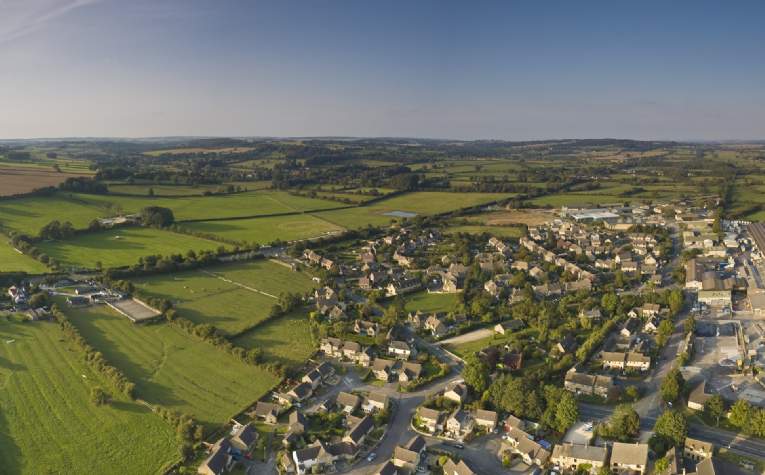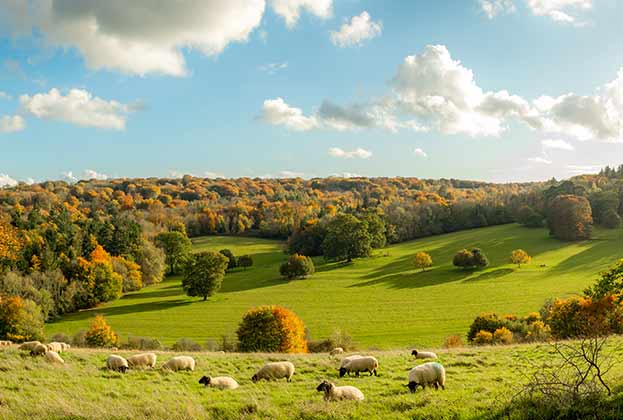As the Government strives towards its net zero target, the role of the rural sector in helping to address climate change and biodiversity loss has become a major focus of attention.
The ensuing debate over land use is all to the good, but it can also result in deeply entrenched views which may be less helpful.
Landowners and farmers can now be compensated for the benefits of the natural capital under their stewardship – and that’s definitely progress. However, amid these carbon pounds, it is important not to lose sight of another of the countryside’s vital functions, that of food production.
In the ongoing drive to harness the potential of rural land, people may take polarised positions very quickly. We saw this with rewilding which fast became a binary concept – were you for it or against it? Similarly, using land for solar or wind farms can be equally contentious.
While issues will often divide opinion, there needs to be the space for discussion; for nuance and the acceptance that it’s possible to be for something in some places and against it in others.
I fear we could be at risk of seeing the same polarisation happen around the term regenerative agriculture. There can be a sense that those not adopting regenerative techniques on a wholesale basis have no concern for the climate crisis, and this is blatantly not the case. Regenerative techniques might work for some farmers and some crops in some areas, but for others they might have such a great impact on yields as to make the crop unviable. People still need an income.
Balance is essential – both in the discussion, and in what happens on the ground. There is no environmental benefit to be had from reducing the nation’s own food production so that we import more – via air, road and sea – from elsewhere.
Land management is far from a binary concept – most farms and estates will have all sorts of solutions in place for different areas of land. It is a great thing to have choice, it brings us flexibility in how we manage our businesses. Farming methods are never going to be a one size fits all, and nor are environmental solutions. Ultimately, it is the individual landowners and farmers who know their land best and they need to be free to make the right decisions for them.
Instead of pulling in different directions, the rural sector needs to recognise all its strengths, whether that’s providing environmental solutions, food security or aiding in the nation’s wellbeing – indeed 'stacking' this range of enterprises is hugely compelling.
- Read the latest rural news and views in the new edition of Savills Aspects of Land
.jpg)
.jpg)
.jpg)

.jpg)
.jpg)
.jpg)
.jpg)
.jpg)
.jpg)
